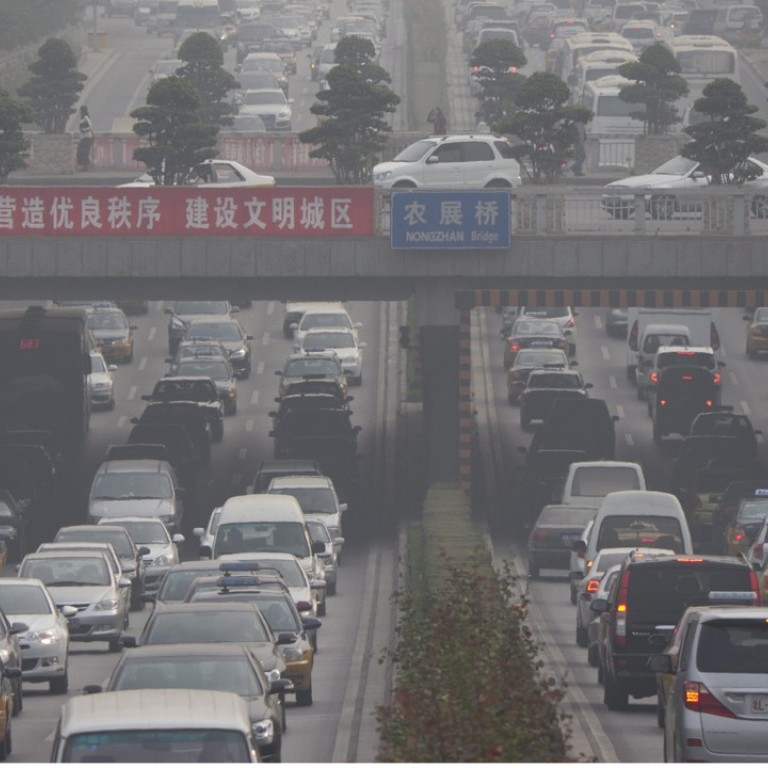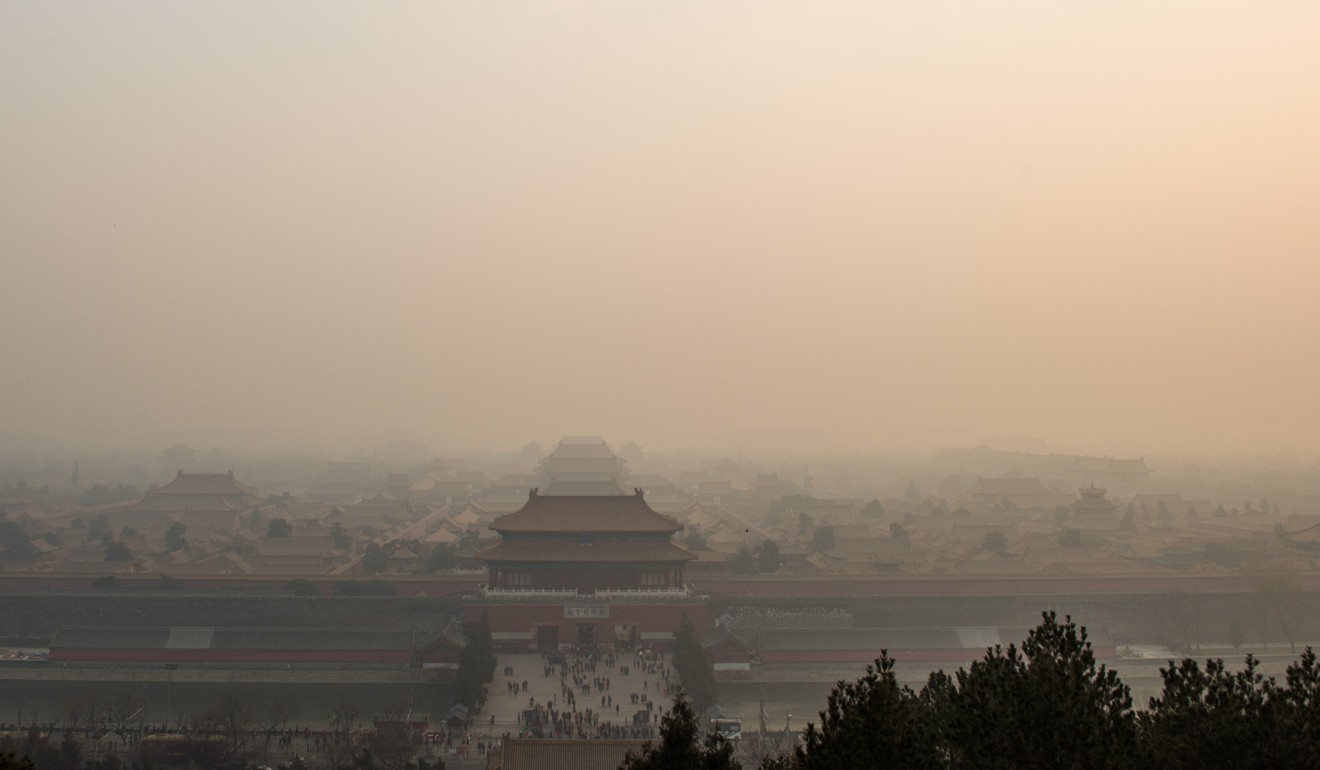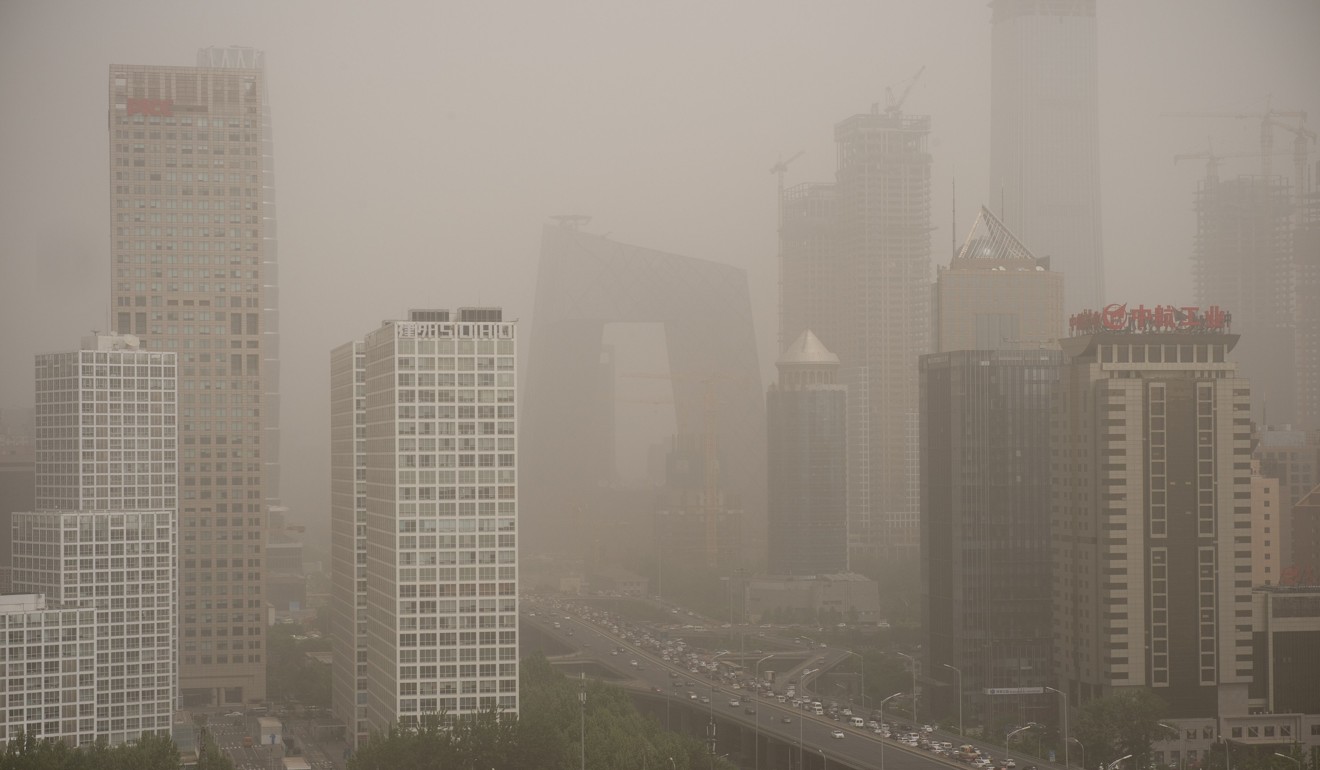
Beijing’s air pollution is changing, new research shows
- Nitrates now the main component of the potentially harmful PM2.5 particles, report says
The composition of air pollution in Beijing is changing, according to the latest research into the subject.
Potentially harmful pollutants, known as nitrates, emitted by cars and factories are now the main component of the tiny atmospheric particulate matter known as PM2.5 in some parts of the Chinese capital, Beijing Youth Daily reported on Sunday, citing an unnamed official from the city’s environment watchdog.
Beijing’s choking smog is back, and the government is blaming perfume and hair gel
Readings taken on Saturday evening in Fangshan and Mentougou districts found that nitrates had overtaken sulphates and black carbon as the main component of PM2.5, the report said.
It said also that the PM2.5 level in the city had risen to 226 micrograms per cubic metre, while air quality in the wider Beijing-Tianjin-Hebei region had also deteriorated.

The reason for the reduction in sulphates and black carbon might be due to the government’s efforts to close factories and ban the use of coal-fired residential heating systems, local media reported.
The World Health Organisation said in a report earlier in the year that air pollution levels remained dangerously high in many parts of the world, including China.
About 2 million people in mainland China die every year from ailments linked to air pollution, the report said.

Air pollution killing 1 million people in China every year, research shows
Improving air quality is one of Chinese President Xi Jinping’s priorities, along with fighting financial risk and reducing poverty.
A campaign held in northern China late last year and designed to reduce people’s dependence on fossil fuels for heating caused a public outcry after tens of thousands of families were left without heating through the long and freezing winter.
The problem arose when officials ripped out people’s coal-fired stoves before replacements fed by natural gas were ready to be installed.

